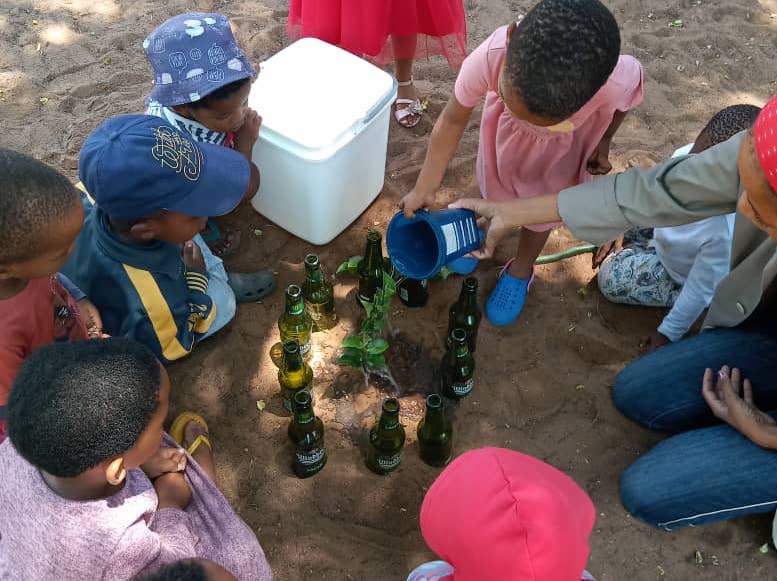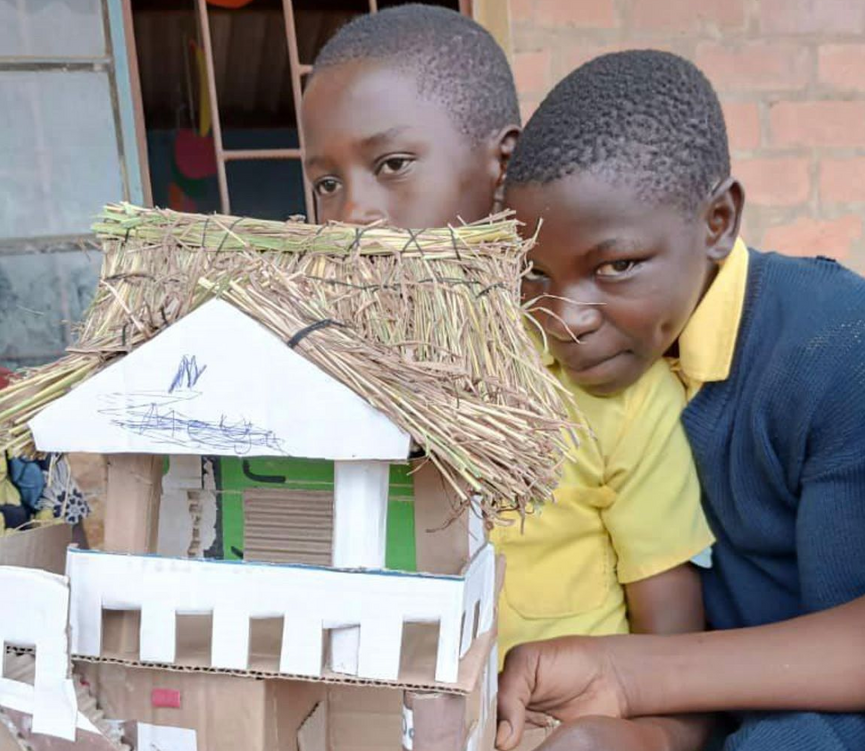Earth Warriors programme teaches young children (and their teachers) about climate change

A project supported by Theirworld in Zambia and Botswana discovered that teachers need more detailed training and children want to protect the planet but don’t know how.
Many children on the frontline of the climate crisis want to learn more about how they can protect their local environment and the planet.
But what if their teachers don’t have the knowledge to explain the concept of climate change?
That challenge is at the heart of a programme launched by the organisation Earth Warriors in remote areas affected by drought and flooding in Botswana and Zambia. The project, supported by Theirworld, is running throughout 2023.
It will reach more than 2,600 children aged three to 11 at 20 schools, teaching them about the southern African region’s most urgent environmental challenges. But it is also training about 100 teachers.
Before the programme began, Earth Warriors conducted a baseline study to measure and understand students’ and teachers’ understanding of the environment and climate change.
While all teachers felt it was important to teach about climate change, more than 70% of them admitted they could not fully explain the concept. After the Earth Warriors induction training, 50% of them said they felt confident teaching about it.
However, Earth Warriors said there is a need for further, more technical training for teachers. Educators’ explanations of climate change mostly referred to changes in seasons and weather – highlighting their lack of detailed knowledge on the subject.
Earth Warriors co-founder Shweta Bahri said: “The baseline study was extremely important for us to understand our starting point – the level of knowledge on environment and climate change teachers and students had before the programme began.
“Among some key findings were that while teachers feel more confident after our teacher training, there is still more support they require to understand the technical concepts of climate change.
“We also found that students are not anxious about climate change at a young age but this changes as they get older. And the majority of children, starting from their early years, want to protect the planet but they don’t know how.
“We now look forward to seeing the results of the endline study and measuring the impact of the Earth Warriors programme.”

Chisomo, 13, and Shebo, 12, with a project they put together as part of an Earth Warriors climate education lesson at Chinsanshi Community School in Lusaka, Zambia (Picture: Zambia Open Community Schools)
In Botswana, the programme is running at 10 schools for children from low-income households, focusing on students aged three to six. The schools include one in the Duwki Refugee Camp and another for children of the San community in the Kalahari Desert.
The 10 schools in Zambia serve children aged three to 11 from low-income households.
Climate change has directly affected schooling in both countries. Students in Zambia recently urged the government to change the school calendar due to colder temperatures, while increasing droughts in Botswana are causing more children to be taken out of school to collect water and care for their family.
Half of all children globally – more than one billion – are at “extremely high risk” from the impacts of climate change, according to UNICEF. Climate-related disasters displace more people than conflict and violence.
They are our future warriors and they have to know what is happening.
A teacher taking part in the Earth Warriors programme in Botswana.
Theirworld Chair Sarah Brown said: “Climate education empowers the next generation to take action to tackle the climate crisis. And yet it’s rarely taught in schools – despite over 90% of teachers wanting to do so.
“At Theirworld, our supporters and Global Youth Ambassadors all tell us time and time again how passionate they are about both climate change and education. You can’t achieve the solution for our planet without investing in people.
“By teaching about climate change early, it will lead to changes in behaviour, greater knowledge and different, more positive, outcomes. We need to keep pushing for climate issues to be part of education content for all ages and stages of learning.”
Learn more about the Earth Warriors project
This project is also possible thanks to the brilliant organisations operating on the ground – Learn To Play, Mosaiko EuroAfricano and 21st Century Pre-School in Botswana; Impact Network and Zambia Open Community Schools [ZOCS] in Zambia.